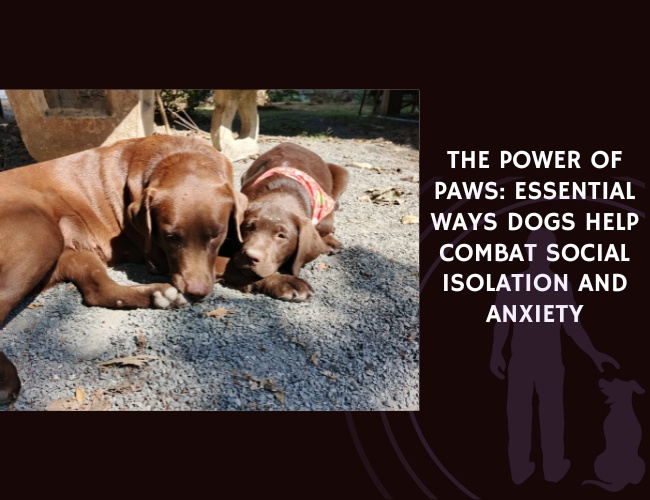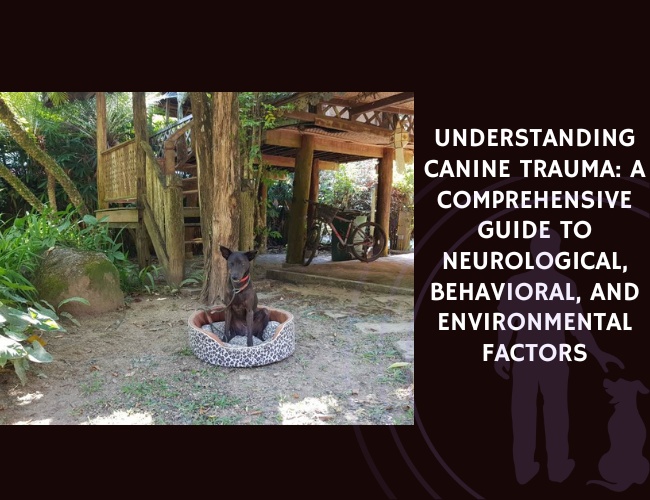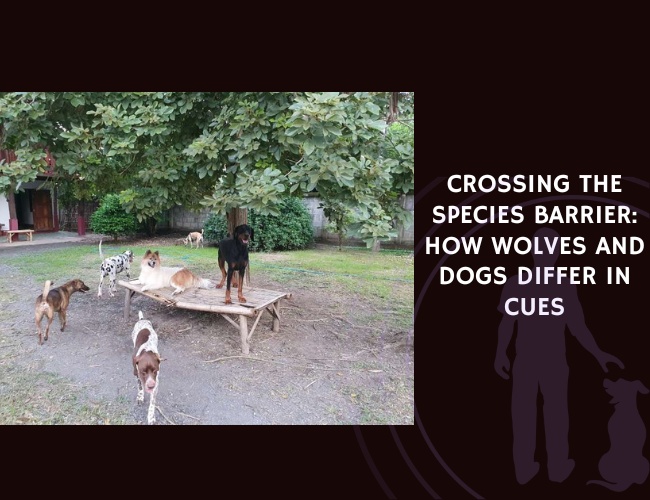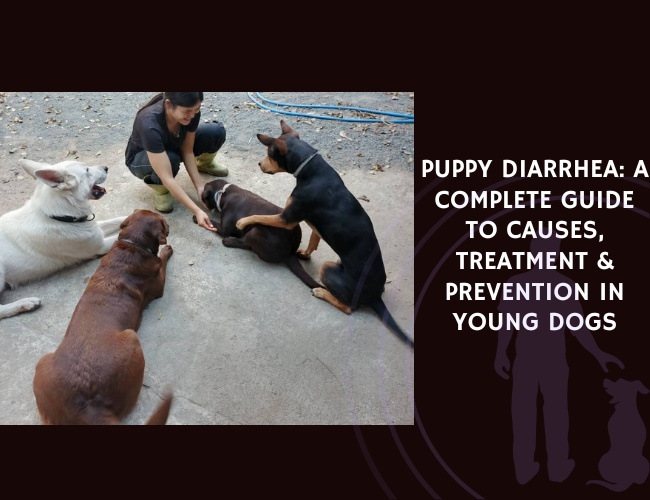Understanding Dogs as Social Catalysts
Historical Evolution
Dogs have accompanied humans through various historical roles, shifting from sheer working animals to cherished emotional companions. Thousands of years ago, dogs primarily helped humans hunt and herd, providing critical support for survival. Over time, as societies evolved and the need for utilitarian roles diminished, dogs found a more intimate place in human homes and hearts. Today, dogs play a central role as emotional support animals, showcasing their unparalleled ability to adapt to human needs and enhance our lives with their presence.
Bridging Social Gaps and Easing Tensions
One of the most extraordinary abilities that dogs possess is their knack for bridging social gaps and easing tensions among people. Their mere presence can transform a stressful atmosphere into a more relaxed one. For instance, in workplaces or family gatherings, a well-behaved dog can serve as a calming presence, fostering a more friendly and approachable environment. This ability is supported by the undeniable comfort that dogs provide, which helps in breaking down social barriers and facilitating easier and more genuine interactions among people.
Natural Conversation Starters and Ice Breakers
Dogs are natural conversation starters. If you’ve ever walked a dog around your neighborhood or visited a dog park, you’ve probably noticed how effortlessly a dog can stir up a chat between strangers. Whether it’s an admiring comment on the dog’s behavior or an inquiry about the breed, dogs provide countless conversational openings. This makes social interactions smoother and less intimidating, especially for individuals who might otherwise struggle with social anxiety. Regular activities such as dog walks or visits to dog-friendly events can lead to repeated interactions, which can eventually turn casual acquaintances into friends.
Walking dogs in the neighborhood often leads to increased interactions with neighbors, contributing to a more connected community. Dogs act as conversation starters, making it easier for people to meet and engage.
Psychological Impact of Dog Ownership
The psychological benefits of dog companionship extend beyond mere social facilitations. When people interact with dogs, it often leads to the release of oxytocin, known as the “bonding hormone,” enhancing feelings of love and trust. This natural biochemical response can improve mental well-being by reducing stress and anxiety, making individuals more open to social interactions in the process.
Additionally, the non-judgmental presence of dogs helps people feel less anxious in social settings. This fosters a sense of security and confidence, enabling smoother interactions and more meaningful connections. For those who own dogs, the increase in social ease often translates into a broader and more supportive social network, contributing to enhanced mental and emotional health.
Family Bonding
Beyond individual benefits, dogs play an important role in strengthening family bonds. Caring for a dog requires teamwork and communication, fostering cooperation and mutual respect among family members. Engaging in dog-related activities, like playing fetch or going for a walk, provides opportunities for family members to spend quality time together, solidifying their relationships through shared experiences.
The effects of dog ownership extend into numerous aspects of life, touching on mental health, family dynamics, and social interactions in unique and subtle ways that collectively contribute to a richer, more connected life experience.
As we continue exploring the profound impact of dogs on our lives, we will uncover even more ways in which our four-legged friends enrich our emotional and social well-being.
Psychological Benefits of Canine Companionship
Release of Oxytocin and Its Impact on Emotional Well-Being
Dogs have a remarkable ability to positively impact our emotional well-being. One key factor in this process is the release of oxytocin, often called the “bonding hormone.” Oxytocin is a biochemical that fosters feelings of love and trust, which can significantly enhance mental health. When we interact with dogs, our bodies release oxytocin, leading to feelings of happiness and emotional connection. This response can help reduce feelings of loneliness and depression, providing vital emotional support to dog owners.
Reduction in Social Anxiety Through Non-Judgmental Presence
Another crucial psychological benefit of canine companionship is the reduction of social anxiety. Dogs provide a non-judgmental presence that can ease feelings of nervousness and unease in social situations. Their calm and accepting nature helps individuals feel more relaxed and comfortable. This presence acts as an effective icebreaker, making it easier for people to engage in conversations with others. Many dog owners report feeling more at ease in social settings, thanks to the support and companionship of their furry friends.
Increased Confidence in Social Situations
Owning a dog can also boost an individual’s confidence in social situations. Dog owners often find themselves more approachable and open to interactions, leading to increased social engagement. When out on walks or at dog-friendly events, dogs naturally initiate conversations between strangers, promoting new friendships and social connections. This increased social interaction not only benefits the dog owner but also helps build a more connected and supportive community.
Engaging with dogs fosters a sense of belonging and boosts overall self-esteem. The companionship of a dog provides a reliable and consistent source of support, empowering individuals to navigate social complexities with greater ease. This dynamic relationship between dogs and their owners underscores the profound psychological benefits that can positively shape human social behavior and emotional well-being.
As we continue exploring the myriad ways dogs enrich our lives, we can appreciate how they strengthen social ties within families and communities. Dogs have an incredible capacity to transform our social worlds, one wagging tail at a time.

Strengthening Family Connections
Enhanced Family Bonding Through Shared Pet Care Responsibilities
Dogs bring families together through shared responsibilities for their care. When family members collaborate on tasks like feeding, grooming, and walking the dog, it fosters communication and teamwork. These shared activities build a sense of unity and mutual dependence among family members. Engaging together in the day-to-day care of a dog ensures everyone contributes, strengthening the familial bond.
Positive Impact on Children’s Emotional Regulation and Social Skills
Children benefit significantly from growing up with dogs. Interactions with dogs can improve empathy, responsibility, and social skills. Studies have shown that children who have dogs often develop better emotional regulation and heightened social competence. Additionally, therapy dogs have been shown to support children with developmental disorders, including autism, encouraging interaction and providing emotional comfort. The presence of a dog can be a soothing and stabilizing influence on children, helping them manage their emotions more effectively.
Creation of Quality Family Time Through Dog-Related Activities
Spending quality time as a family is one of the most rewarding aspects of owning a dog. Activities like playing fetch in the park, training sessions, taking long walks, or even participating in dog-friendly events create opportunities for families to bond. These activities offer a break from screens and daily stressors, allowing families to enjoy meaningful time together. The joy and laughter a dog brings during these moments contribute to lasting memories and a stronger family unit.
Dogs also encourage family involvement in community events like adoption drives and training sessions, which further strengthens family connections by engaging in shared experiences and socializing with other families. Such activities not only bring happiness and fulfillment but also foster a deeper sense of togetherness and mutual support.
As we’ve seen, dogs play an invaluable role in enhancing family dynamics through their contribution to shared responsibilities, positive impact on children, and the creation of quality time. These elements help to cultivate a nurturing and connected family environment.
Building Community Through Dogs
Dog Parks as Social Networking Hubs
Dog parks serve as community hubs where pet owners congregate, allowing them to forge new relationships and strengthen existing ones. These parks create an environment where both dogs and their humans can socialize freely. Regular visits foster a sense of camaraderie as familiar faces and tails become part of the routine. This shared interest in dogs breaks down barriers, making it easier for conversations to start and friendships to form.
Studies show that dog parks significantly contribute to building social networks among dog owners, enhancing community cohesion. The interactions at dog parks often extend beyond the park, leading to a tighter-knit community.
Neighborhood Connections Formed During Dog Walks
Walking a dog around the neighborhood is a simple yet effective way to strengthen community bonds. Dogs naturally draw attention, acting as icebreakers and sparking conversations between strangers. This daily activity fosters a sense of familiarity and security within the neighborhood.
Research indicates that walking dogs often leads to increased interactions with neighbors, contributing to a more connected community. These casual encounters can evolve into meaningful relationships, providing social support and a sense of belonging.
Community Engagement Through Dog-Centric Events
Community events centered around dogs, such as adoption drives, training sessions, and pet fairs, offer excellent opportunities for socialization. These events bring together dog owners and enthusiasts, fostering a supportive community network. Participation in such events encourages people to engage with their neighbors and build stronger community ties.
Dog-centric events also serve an educational purpose, providing information on responsible pet ownership and the benefits of having a dog. This shared learning experience enriches the community, promoting healthier and happier living environments.
Closing Thoughts
Dogs play an instrumental role in building and maintaining social connections within communities. Whether through daily park visits, neighborhood walks, or participation in community events, dogs help bridge social gaps and bring people together. By enhancing our daily interactions and fostering a sense of community, dogs not only enrich individual lives but also contribute to a kinder, more connected society.
Special Support Roles
Therapy Dogs in Healthcare and Educational Settings
Therapy dogs provide emotional support in various settings, including hospitals, nursing homes, and schools. They foster social interaction among vulnerable populations, significantly enhancing social skills and emotional well-being. These lovely canines act as a bridge, easing social tensions and promoting a sense of calm and security.
- Hospitals and Nursing Homes: In healthcare environments, therapy dogs can reduce patient stress, anxiety, and depression. Their non-judgmental natures contribute to a sense of normalcy during challenging times.
- Schools: Therapy dogs also have a remarkable impact on children, including those with developmental disorders such as autism. They encourage interaction and provide emotional support, helping children develop better social skills and emotional regulation.
Programs involving therapy dogs have demonstrated positive impacts on children’s social skills and emotional well-being, particularly for those with special needs. The presence of therapy dogs has a therapeutic effect, fostering a positive atmosphere conducive to learning and emotional growth.
Service Dogs Enabling Independence for Individuals with Disabilities
Service dogs play a vital role in enabling individuals with disabilities to live more independent lives. These highly trained dogs assist with daily tasks, mobility, and emotional support.
- Physical Disabilities: Service dogs aid with tasks like opening doors, retrieving items, and providing balance support, significantly enhancing their owner’s mobility and independence.
- Hearing Impairments: For those with hearing issues, service dogs can alert their owners to important sounds such as doorbells, alarms, or crying babies, offering an essential service that increases safety and awareness.
- Psychiatric Support: Service dogs also assist individuals with PTSD (Post-Traumatic Stress Disorder), offering comfort during anxiety attacks and ensuring their owners maintain a safe and calm environment.
Service dogs enhance the independence and mobility of individuals with disabilities, helping them integrate into society. Their presence can reduce social stigma and foster better understanding among the public, promoting social cohesion and inclusivity.
Emotional Support Animals Helping with Anxiety and Depression
Emotional support animals (ESAs) provide companionship and support to individuals with mental health issues, particularly anxiety and depression. Unlike service dogs, ESAs do not require special training to perform specific tasks but are invaluable for their psychological benefits.
- Anxiety Reduction: The companionship of an ESA can alleviate symptoms of anxiety, offering comfort and reducing feelings of isolation.
- Depression Support: ESAs help create a routine, giving their owners a sense of purpose and motivation. Their presence has been linked to the release of oxytocin, known as the “bonding hormone,” which enhances feelings of love and trust, contributing to improved mental health outcomes.
For individuals living with anxiety and depression, the companionship of an ESA can be life-changing. They promote better social engagement, reduce feelings of loneliness, and offer a constant source of comfort and stability.
Dogs, whether as therapy dogs, service dogs, or emotional support animals, have an unparalleled ability to provide essential support roles that significantly improve the quality of human life. Their presence can foster independence, enhance emotional well-being, and integrate individuals into society more smoothly, underscoring their invaluable role in enriching human lives.
By understanding these roles, we can better appreciate how dogs contribute beyond companionship, making a profound impact on various aspects of social well-being.

Combating Social Isolation
Dogs play a pivotal role in helping to combat social isolation, particularly among elderly individuals and those living alone. Their engagement with people has been shown to provide not only companionship but also emotional and social support. Let’s explore the ways that dogs contribute to a reduced feeling of loneliness and enhanced social interaction.
Benefits for Elderly Individuals and Reduced Loneliness
For many elderly individuals, maintaining an active social life can be challenging. Reduced mobility, health issues, and the loss of friends or family members may lead to feelings of loneliness and isolation. Dogs can significantly alleviate these feelings by providing constant companionship and a reason to be more active.
Interaction with dogs encourages seniors to engage in outdoor activities, such as walking, which can improve physical health and mental well-being. These activities also often lead to social interactions with other dog owners, fostering new relationships and reducing isolation. Research shows that older adults who own dogs have lower rates of depression and higher levels of life satisfaction.
Support for People Living Alone Through Routine and Companionship
Living alone can be a source of loneliness for many, but dogs can provide a comforting presence that mitigates this isolation. The routine of caring for a dog—feeding, walking, grooming—instills a sense of purpose and structure in the daily lives of individuals who live alone. This routine can help reduce feelings of aimlessness and contribute to a more positive mental state.
Moreover, dogs act as social catalysts, often leading their owners into social situations that they might otherwise avoid. Daily walks or visits to the dog park open up opportunities for casual conversations and interactions, serving as small but significant steps toward a more connected social life.
Increased Social Integration for Individuals with Disabilities
For individuals with disabilities, dogs can be instrumental in fostering greater social integration and independence. Service dogs, for instance, facilitate mobility and reduce reliance on others, making it easier for their owners to engage in social activities. This increased independence helps break down social barriers and diminishes the stigma often associated with disabilities.
Additionally, the companionship of a dog can decrease social anxiety, making it easier for individuals with disabilities to interact with others. Dogs tend to attract positive attention and provide common ground for starting conversations, which can lead to the formation of new friendships and support networks. This enhanced social connectivity is vital for building a supportive and inclusive community.
Dogs indeed have the power to transform lives by reducing feelings of loneliness and helping people forge meaningful connections. They provide love, companionship, and a bridge to a more socially integrated lifestyle, benefiting individuals of all ages and backgrounds.
Next Chapter:
The following content will delve into the practical challenges and considerations of dog ownership, including social barriers, allergies, and cultural perceptions.
Challenges and Considerations
When examining the myriad benefits of dog ownership, it is critical to also consider the challenges and limitations that can affect the outcomes. While dogs can significantly enhance social interactions, mental health, and family dynamics, several factors can hinder these potential benefits.
Social Barriers and Personality Factors
Not every dog owner experiences a seamless increase in social connections. Various elements, such as personality traits and environmental context, play vital roles in determining the social benefits of dog ownership. Individuals with introverted personalities may find it more challenging to engage in conversations with strangers, even with a dog present. Additionally, urban environments may offer more opportunities for social interaction through dog parks and community events compared to rural settings, where such social hubs are less frequent.
Furthermore, some studies indicate that the positive social impacts of dog ownership can be subjective and vary significantly among individuals. It is essential to recognize these variations to provide a realistic perspective on what dog owners can expect regarding social benefits.
Considerations for Allergies and Fear of Dogs
Dogs are not suitable for everyone. For some individuals, allergies and fears related to dogs can create substantial barriers. Allergic reactions to pet dander can range from mild to severe, causing discomfort and health issues that may inhibit the ability to own or even interact with dogs.
In addition to allergies, cynophobia, or the fear of dogs, is a prevalent condition that can deter people from enjoying the social benefits of canine companionship. This fear can stem from past traumatic experiences, further reinforced by societal and cultural factors. Addressing these fears requires awareness and accommodation from both dog owners and non-owners to ensure a harmonious social environment.
Cultural Differences in Perception of Dogs
Globally, cultural attitudes towards dogs can significantly influence their role as social facilitators. In some cultures, dogs are revered and integrated seamlessly into family and community life, while in others, they may be viewed with suspicion or considered unclean. These cultural perceptions can affect how social connections develop through dog ownership.
For instance, in Western societies, dogs are often seen as “man’s best friend” and part of the family. In contrast, in certain parts of the world, dogs might be primarily regarded as working animals or, in some cases, avoided altogether due to religious or traditional beliefs. Understanding and respecting these cultural perspectives is crucial to navigating the complex social landscape surrounding dog ownership.
Dogs have evolved from working animals to cherished companions, playing a central role in providing emotional support. They have the ability to bridge social gaps and ease tensions, creating a more relaxed atmosphere. Dogs are also natural conversation starters, making social interactions smoother and less intimidating. Owning a dog can have psychological benefits, such as reducing stress and anxiety, and enhancing feelings of love and trust. Dogs provide psychological benefits to their owners, including reducing anxiety in social settings. This leads to increased confidence and smoother interactions with others.
Dogs also strengthen family bonds through teamwork and shared activities. The release of oxytocin when interacting with dogs enhances emotional well-being, while their non-judgmental presence reduces social anxiety. Overall, owning a dog contributes to a richer and more connected life experience. Dogs have a significant impact on strengthening family connections and building social ties within communities. By engaging with dogs, families can bond through shared responsibilities for their care, which fosters communication and teamwork. Interacting with dogs also benefits children by improving empathy, responsibility, and social skills, and therapy dogs can provide emotional support for children with developmental disorders. Dog-related activities create quality family time and opportunities for families to participate in community events, further strengthening their connections and socializing with other families. The text discusses how dogs can contribute to building a sense of community and social connections. It highlights the role of dog parks as social networking hubs, where pet owners can forge new relationships and strengthen existing ones. It also mentions how walking dogs in the neighborhood can lead to increased interactions with neighbors and the formation of meaningful relationships. Additionally, the text emphasizes the importance of dog-centric events in fostering a supportive community network and promoting responsible pet ownership.

Summary
Overall, dogs play an instrumental role in bridging social gaps and bringing people together, enriching individual lives and contributing to a kinder, more connected community. Therapy dogs, service dogs, and emotional support animals play important roles in society. Therapy dogs provide emotional support in healthcare and educational settings, helping to reduce stress and enhance social skills and well-being. Service dogs assist individuals with disabilities by performing tasks and providing emotional support, enabling them to live more independent lives. Emotional support animals offer companionship and support to individuals with mental health issues.
These animals contribute to social cohesion, inclusivity, and overall well-being in society. The text discusses the benefits of having an emotional support animal (ESA), particularly for individuals with anxiety, depression, and social isolation. ESAs can alleviate symptoms of anxiety, provide routine and motivation for those with depression, and combat loneliness in elderly individuals and people living alone. Dogs, in particular, play a crucial role in offering companionship, emotional support, and social interaction.
The text discusses the purpose and structure that dogs provide in the daily lives of individuals who live alone. It highlights how dogs can reduce feelings of aimlessness and contribute to a more positive mental state. Additionally, dogs act as social catalysts, leading their owners into social situations and increasing social integration for individuals with disabilities. However, the text also acknowledges the challenges and limitations that can affect the outcomes of dog ownership, such as social barriers and personality factors. This text discusses the various considerations and cultural differences that can impact the social benefits of owning a dog. It highlights factors such as allergies, fear of dogs, and cultural attitudes towards dogs, emphasizing the need for awareness and accommodation to create a harmonious social environment.


 Looking to go deeper into dog training?
Looking to go deeper into dog training? Dog Behavior
Dog Behavior Dog Training
Dog Training Dog Nutrition
Dog Nutrition Health & Wellbeing
Health & Wellbeing Dog Entertainment
Dog Entertainment Dog Breeds
Dog Breeds Who is my Dog
Who is my Dog






